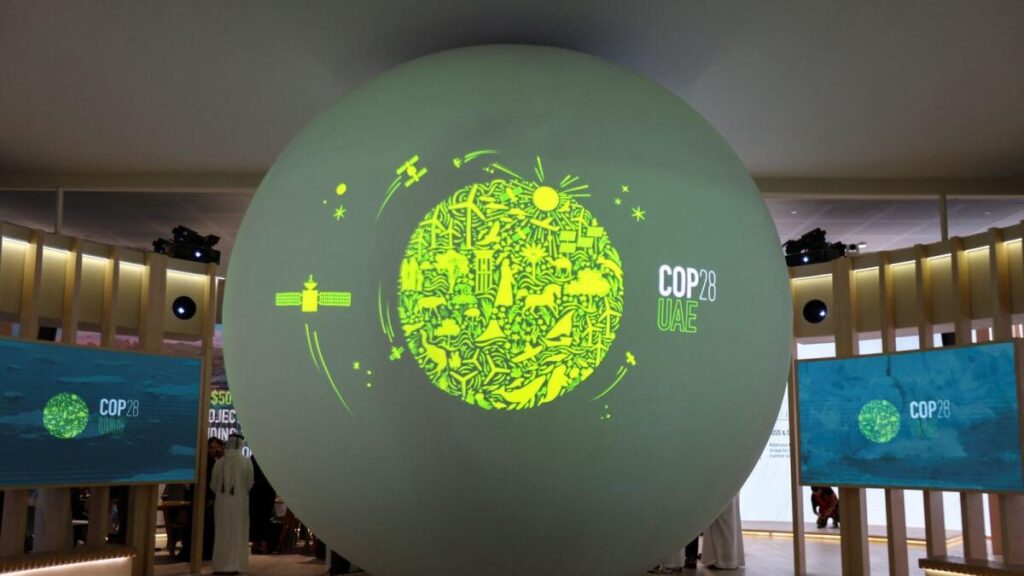Following the successful Expo 2020 in the UAE, the significance of the United Nations Climate Change Conference (COP28) becomes evident. Despite the substantial challenges posed by the COVID-19 pandemic, the UAE turned Expo into a remarkable trade and commerce event through determination, meticulous planning, substantial investment, and innovation.
As the world grapples with the profound issue of climate change, the UAE is poised to channel the same spirit into COP28, according to the Khaleej Times.
Nevertheless, tackling a challenge as immense as climate change requires a collective effort, extending beyond the boundaries of a single nation. The path leading to COP28 on November 30 is marked by critical milestones. These range from corporate boardrooms emphasizing presentations to think tanks analyzing data, corporations seeking growth opportunities, and policymakers determining incentives.
Everyone acknowledges that addressing climate change, both in terms of mitigation and adaptation, necessitates collaborative thinking, mutual compromises, and effective financial strategies.
Several obstacles loom large in the build-up to this monumental event. There exists a substantial gap between the financial resources required to combat climate change and what is currently available. While public finance plays a crucial role, the scale of the challenge demands significant private-sector investment.
Challenges on the Road to COP28
Addressing these challenges calls for cooperation between nations, more transparent governance mechanisms, increased commitment from the developed world, innovative financial instruments, and greater involvement of the private sector. These challenges cannot be resolved all at once during a single summit. They require a gradual approach, with numerous events fine-tuning approaches, conducting cost-benefit analyses, and addressing specific issues.
These events serve as the stepping stones that will iron out the finer details leading up to November, where headline-grabbing announcements may take centre stage. The foundations of decision-making usually trace back to these brainstorming sessions where stakeholders weigh their options and make informed decisions.
Regional platforms play a pivotal role in the build-up to COP28. Four major events stand as significant milestones leading up to the grand event later this year. These gatherings help to refine the agenda to cater to the specific needs of participants. The process kicked off with Africa Climate Week (ACW 2023) held in Nairobi from September 4-8, running in parallel with the Africa Climate Summit.
Next in line is the Middle East and North Africa Climate Week (MENACW 2023), hosted by Saudi Arabia from October 9-12. It serves as the second Regional Climate Week, building momentum towards COP28. Panama will host the Latin America and Caribbean Climate Week (LACCW 2023) from October 23-27, representing another significant milestone.
The final event in this series is Asia-Pacific Climate Week 2023 (APCW 2023) in Johor Bahru, Malaysia, from November 13-17. The culmination of these events will lead to the first Global Stocktake (GST), concluding at COP28 in the UAE in December.
First Global Stocktake Marks Midpoint in 2030 Sustainable Development Agenda
The first Global Stocktake takes place at the midpoint of implementing the 2030 Agenda for Sustainable Development and Sustainable Development Goals (SDGs), including Goal 13 (climate action). Preceding the GST, there will be a mandated workshop on the elements of the GST outcome in the UAE in October.
Taking a different trajectory, there are pre-COP meetings where ministers from various countries discuss key political aspects of the upcoming summit.
Parallel to these meetings are Thematic Workshops and Meetings, addressing aspects of the climate negotiation process such as technology transfer, adaptation, mitigation, and finance. Before these scheduled meetings, the UNFCCC subsidiary bodies met at the Bonn Climate Change Conference in June to advance technical work.
Further critical milestones on the road to COP28 encompass pivotal reports, updates, and publications from influential institutions like the Intergovernmental Panel on Climate Change.
These documents often establish the agenda or exert significant influence on discussions. Additionally, there are gatherings of the Technology Executive Committee, the Climate Technology Centre and the Network Advisory Board, as well as Ministerial Consultations regarding funding arrangements for addressing loss and damage.
Climate Change on the Global Stage: Forums and Stakeholders
Climate change typically remains a prominent topic in other high-level forums, including the G7 and G20 summits, the United Nations General Assembly, and the World Economic Forum. Beyond the primary objective of reaching a consensus on practical solutions among key stakeholders, these governments also contend with initiatives put forth by non-state actors, including corporations and NGOs. These entities frequently host events, launch initiatives, or publish reports that can sway the direction of COP discussions.
While public finance is undeniably crucial and in high demand, addressing the challenge also necessitates substantial private-sector investment. However, stimulating private sector involvement can be challenging due to perceived high risks and uncertain returns.
Ongoing debates revolve around the prioritization of funds whether should more funding be allocated to mitigation (reducing emissions) or adaptation (assisting countries in coping with climate change effects).
All these intricate details will demand extensive deliberation in the lead-up to the summit.
Hopefully, the UAE’s concerted efforts will result in a convergence of perspectives and lead to historic decisions aimed at safeguarding the future of our planet.


